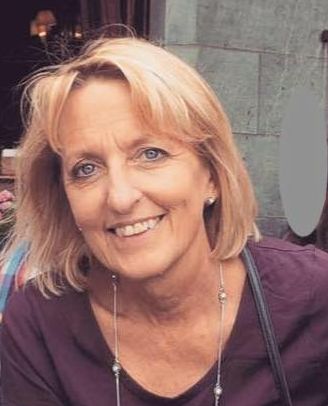
Professor, Department of History, Director of the Honors Program,
and Co-director of Gender and Women’s Studies Program,
Shepherd University
Sally joined the faculty of Shepherd University in 2004. Her research interests focus upon religious and urban life in medieval Italy. Her books include Women of the Humiliati: A Lay Religious Order in Medieval Civic Life (Routledge Press) – which originated in the dissertation she wrote at Catholic University under the direction of Professor Katherine L. Jansen – and Hospitals and Charity: Religious Culture and Civic Life in Medieval Northern Italy (Manchester University Press), as well as a forthcoming edited volume, Popular Reaction to Apocalypticism in the High and Late Middle Ages (Brill, anticipated 2024). Her current work in progress includes a digital humanities project on the cultural imprint of the Normans in Sicily, based upon GIS (Geographical Information Systems) analysis.
Sally’s strongest memories of her time as a doctoral student in our Department relate to her faculty mentors. She says: “In particular, Professor Jansen ignited my life-long love affair with medieval Italy. I have taught many classes on the subject since and still use the notes from her classes. In my research, I have not strayed far from Italy and the many months and years researching there have provided me great personal and professional joy. I am the co-director of the Gender and Women’s Studies Program at my university, and I often reference works I studied in Professor Laura E.N. Mayhall’s course. Texts from her class are time-worn favorites that I still use. I vividly remember lively debates around her conference table! I remember being very afraid of Professor L.R. Poos’s quantitative methods class when I arrived and then quickly becoming a quantitative convert. My dissertation had a quantitative element that allowed me to develop my argument and prove it through rigorous statistical methodology. Again, a tool I continue to employ in my research and teaching.”
Sally joined our Ph.D. program after having earned a master’s degree in medieval art history, and found the transition to studying the lives portrayed in that art especially fulfilling. “I was introduced to the social and cultural world of the everyday medieval citizen and made aware of the experiences of the marginalized and underrepresented. The challenge of finding these individuals in the sources became my passion and I haven’t looked back. I teach our Historical Methodology course now which includes an introduction to the various schools of historiography. At the end of the semester, I ask the class to guess my perspective and their answers illustrate how closely I’ve held to the social and cultural historical perspectives I learned at CUA. In all classes, I use my medievalist training to find and interrogate unconventional sources. The time I have spent combing through state archives in small towns in Italy for an obscure glimpse into the medieval past is most precious to me.” In that spirit she advises students currently in our graduate program “Enjoy the journey while you can! There will never be the same opportunity to sit around and debate the relative agency and freedom of the medieval anchorite!”
All of our alumni profiled in this issue of Connections are well aware of the pressures currently upon humanities subjects in American universities these days, and make strong cases for medieval studies as one foundation of the liberal arts in the twenty-first century. Sally explains: “This is a rather timely question for me. I teach at a small public university in the state of West Virginia. I have loved my 20 years at this institution in large part because I feel that I have made a real difference in the lives of many first-generation students and students who have not been introduced to subjects like medieval history or the humanities in general.
“I have witnessed the impact the humanities have on students in developing life skills beyond just understanding content. The ability to think critically, analyze evidence, synthesize data, understand other cultures, and read deeply and broadly, is imperative to being a good citizen of one’s community, the nation, and the world. I firmly believe the lessons of history, from any era, are always relevant. My field of urban experience and health care in the face of demographic crises like the Black Death was suddenly extremely useful during the pandemic! Unfortunately, issues of gender inequality and inflexible patriarchal control in such areas as body autonomy that were constructed in the Middle Ages continue to resonate in our modern world. Understanding the foundational nature of the varied relationships between the Islamic and Christian worlds in the Middle Ages is essential to contextualizing current events.
“It is true that one must always know and learn from history, but I think that call has never been more urgent. As I tell my students, history shows you who you are, where you came from, and where you are going. It encourages you to question assumptions, challenge conventional wisdom, consider alternate ideas and beliefs, and view the world from a deeper, richer perspective.”
